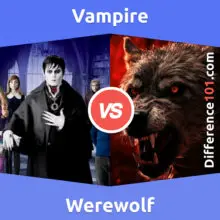Gaelic vs. Celtic: the terms Celtic and Gaelic caused a lot of confusion among people because of the similarities between these terms and how they are related to each other. But there is a clear difference between Celtic and Gaelic, as Gaelic is spoken in Ireland, Scotland, and the Isle of Man, while Celtic is a group of languages.
Let’s take a closer look at Celtic versus Gaelic
| Culture | Gaelic belongs to Celtic culture, while Celtic culture contains many different traditions. |
| Location | Both languages are commonly spoken in Scotland and Ireland |
| Family | Both languages belong to the Indo-European family. |
| Official Language | These are the official languages of Scotland and Ireland |
Table of Contents
What Is the Gaelic Language?

Gaelic is an Indo-European language that is commonly spoken in Scotland and Ireland. This language is a member of the Celtic family, which includes many other languages and traditions as well. The Gaelic language is rich with ancient tradition and is used in many schools and media outlets in Ireland and Scotland. A small number of people in the United States, Canada, and Australia also speak this language.
What Is Celtic Language?

A Celtic language is a group of languages related to each other and descended from Porto-Celtic. These all languages form a branch of the Indo-European language family. Celtic languages are spoken across Europe, America, and North Africa. Six Celtic languages are still spoken: Breton, Cornish, Irish, Scottish Gaelic, Welsh, and Manx. All Celtic languages are similar in many ways. They share a common grammar and vocabulary.
5 key differences Between Gaelic and Celtic Languages
| Components | Gaelic Language | Celtic Language |
|---|---|---|
| Description | The Gaelic language and tribes are the subcategories of the Celtic languages and are small branches of it. | The Celtic language is a combination of many different languages and cultures which are grouped into one. |
| Origin | The Gaelic language originated from Ireland in the 4th century and was first introduced in Scotland. | The Celtic culture rises in 1200 B.C. and spread around the different parts of western Europe. |
| Family | The Gaelic languages come under the Indo-European language family. These are part of the Goidelic subdivision. | Celtic languages are believed to be descended from Proto-Celtic and belong to the Indo-European language family. |
| Language | The Gaelic language spoken these days is known as Scot Gaelic or Scottish Gaelic. | Four primary languages are spoken these days; Welsh, Irish, Breton, Scottish Gaelic, and many other minor languages. |
| Regions | The Scottish Gaelic language is commonly spoken on the northwest coast of Scotland. | The Celtic language and culture are common in Ireland, Scotland, Cornwall, and the Isle of Man. |
Gaelic vs. Celtic Similarities
- Gaelic and Celtic languages are related because Gaelic is a branch of Celtic languages.
- Gaelic and Celtic languages, together with Brythonic language, form a group of Insular Celtic languages.
Gaelic vs. Celtic Pros and Cons
Gaelic Pros and Cons

Pros of Gaelic
- Learning the Gaelic language makes it easier to learn other languages like Spanish or French, which have the same rules.
- Learning different languages like Gaelic can offer more opportunities in my career as it makes me a better reader and learner.
Cons of Gaelic
- According to an estimate in 2018, the Scottish Gaelic language is at the risk of dying out.
- Sometimes, learning a different language like Gaelic becomes extremely difficult and frustrating.
Celtic Pros and Cons

Pros of Celtic
- By learning Celtic languages, you may be able to learn the language spoken by Irish people about two thousand years ago.
- Learning a language like Celtic will give you a chance to be a part of the Irish speaker population, which is relatively small.
Cons of Celtic
- You cannot get much financial benefit from learning a Celtic language except you start teaching it.
- Few Celtic languages are spoken these days, and most of the others have been endangered.
Comparison Chart

Comparison Video
Conclusion
Gaelic or Celtic, are both ancient languages descended from a common ancestor. That’s why most people think that it is only one Celtic Gaelic language. But these both languages are different in many ways. The main difference between Gaelic and Celtic languages is that the Gaelic language is itself a branch of the Celtic language. But Celtic language is a group of languages closely related to each other. Both languages may have a common ancestor but evolved at different times.








